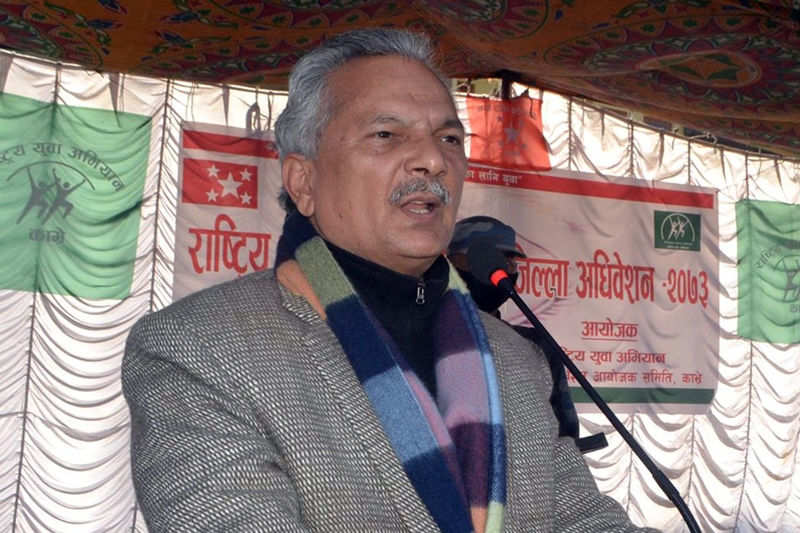Democratisation still ongoing: Bhattarai
Kathmandu, March 15
Naya Shakti Party-Nepal Coordinator Baburam Bhattarai has said democratisation of Nepali society and polity has not ended with the transition from bullet to ballot, as the task of democratic transition is a continuous process of progression.
Addressing the Counter Terrorism Conference on the theme, ‘Bullet to Ballot’, in New Delhi today, the former prime minister argued that the transitional nature of Nepali politics is ongoing. Even though creation of new political institutions and constitutional remedies are crucial aspects, a nation must always make relentless effort to continuously democratise its relationship with its people, he stressed.
The former prime minister argued that he left the Maoist party and established an alternative political force — Naya Shakti — that could genuinely and rightfully address the new challenges of this new era in Nepal.
According to him, the expression ‘Bullet to Ballot’ in the plain and literal sense suggests a shift in the use of political tools or the means of conducting politics.
“Everyday politics is very often about shades of grey where not everything presents itself as black and white. It is this obscure area that opens up new possibilities for us to think and act differently about how we can restructure the democratic space to accommodate those that remain outside it,” he opined.
Moreover, he said the Maoist movement in Nepal was a political movement informed by ideas of social justice, socio-economic programmes that attracted widespread support among the people.
Politically, the struggle between monarchy and democracy has been the main contradiction in Nepal’s modern history. All the major political parties in Nepal since their formative days have led popular struggles against autocratic regimes in one form or the other, he mentioned.
One of the uniqueness of Maoist politics in Nepal, he claimed, was that they played a pivotal role in the final battle of monarchy versus democracy, through both the bullet and the ballot.
Bhattarai was of the view that one of the important factors for timely transition from bullet to ballot in Nepal was the highly sensitive geo-political positioning of the country sandwiched between two huge states of India and China. A prolonged armed conflict could have a spillover effect in the neighbourhood leading to serious conflagration in the region, he added.
“By ousting monarchy and establishing a republic, Nepal’s new constitution marked a rupture from the past political regime in one way. But, on the other hand, there was also an institutional compromise regarding parliamentary democracy between the Maoists and the non-Maoist parties,” he said, adding that if the structural origins of conflict remain unaddressed, and democratic spaces for articulation of genuine socio-economic and political demands are not made available to people, then the sustainability of any society’s transition towards a stable, peaceful and functional democracy can remain vulnerable.
Bhattrai said the idea of Naya Shakti is a natural corollary to transition from bullet to ballot.






